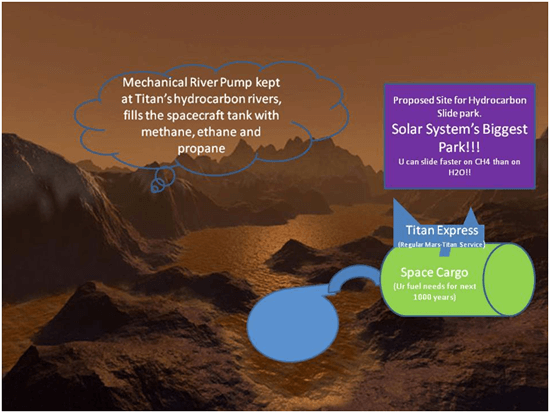Emerson’s Anand Iyer brings his humor and perspectives to instrumentation and innovation in today’s guest post.
Elizabeth, a popular movie, depicted the dire straits of the British Empire sometime in the 15th century and how by commanding entrepreneurs to set sail around the globe, the queen was able to create one of the greatest empires.And compare it to the promise of extra terrestrial adventures of human beings (confined only to cinemas around the world). Fact has it that it was the communists who actually started the space race. As long as they were there, everyone wanted to be there. And so on…
In 1990, when I graduated, there seemed a remote possibility, that sometime in the near future, there would be spacefarers because:
- It takes equal to less time to go from Earth to Mars or Moon or Venus, than it took the ancient seafarers to go from Europe to India. 8-10 months (actually more than three years of high risk, before better ships came to ply Europe-India routes) or more for ancient sea-farers to 210 days or less (you burn more fuel) for a trip to Mars. Also, a plasma engine that will reduce it to 39 days. I wonder, why don’t we piggy back ride on some comet and reach far away planets? Such opportunistic travel at far away intervals (every 75 years for Halley’s comet) could provide better mpg figures and very fast transport to far away space objects.
- Conditions in space ships are typically better than the ancient ships (thanks to democracies and labor laws).
- The possibility of say a Christopher Columbus starting to go to Mars and landing on Posiedon and not recognizing it as Posiedon and calling it “White Mars” is not there at all. Only Columbus in ancient past could try to go to India, get lost and land in America and not know that this was not India for some time and end up calling the natives as Red Indians.
- The communication systems are so advanced that there is less possibility of being incommunicado for such a long time as the ancient seafarers. You could still do a Skype, GTalk or Windows Messenger chat on a daily basis and post your photos on Facebook every day.
- We probably have maps of every rock in space or at least a better idea than the maps of sea routes of ancient seafarers.
The adventure of working as a calibration engineer, or systems consultant in some nearby planet or working for an organization that just collected the sulphuric acid rain in Venus and transported back to planet Earth seemed remotely possible in 1990. (Also scope for some custody transfer app. Order placed at Titan at 10 Deg K for sale in Texas at 15 Deg C or something like that). I could have been one among those multitude of science graduates, performing simpler tasks like calibrating transmitters, replacing gauges, maintaining logs and so on…
But somehow this has not materialized. And while in the ancient past, powerful autocracies and even autocracies with lesser power could push forward agendas with unknown risks, democracies with the opportunistic demeanor of opposition parties, ever ready to pounce on the slightest of misfortunes to dislodge the “in-power” seem to shiver at taking (even) allowable risks.
Can a president or prime minister call for a human mission to Mars or Venus, with a view of establishing a colony. Even with the probability so highly balanced towards success, such a mission would not be approved. Can a president or prime minister approve a private (some may say greedy) entrepreneurs plans to tap hydrocarbons from Titan or other moon or sulphuric acid from Venus? Again, doubts and questions may not allow this to happen.
Source: Background artist rendition of a Hydrocarbon River on Saturn’s Titan from SpaceDaily.com https://jimc.me/Wl4eBa
Democracies seem to waste a lot of time in taking “bullet-biting” decisions. And seem to be looking for zero risks all the time. Scientific progress and business growth is therefore limited to “known-avenues” only. The prevailing thought seems to be, “When we could get all the oil from Iraq, then why risk human life in trying to get the same from Titan or elsewhere?”Riskier ventures that may bring in great fortunes to all may be delayed beyond tolerable limits causing other social imbalances…
Should such scientific temperament then ask for reinstatement of autocracies, militaristic regimes, and Communists??? Hopefully not!! Hopefully democracies will include some measure of having taken risky decisions (at least 2-4% per annum) necessary for next elections that could see an end to this “stalemate” situation.
And hopefully at some time before my retirement, I am able to count some freshly-minted Martian dollars, lying on a hammock in my cabin overlooking Ascraeus mons (mountain in Mars), for calibrating pressure transmitters or writing a script converting Earth ambient to Mars ambient to Earth gauge to Mars gauge pressures, on the Titan hydrocarbon unloading and metering station…







